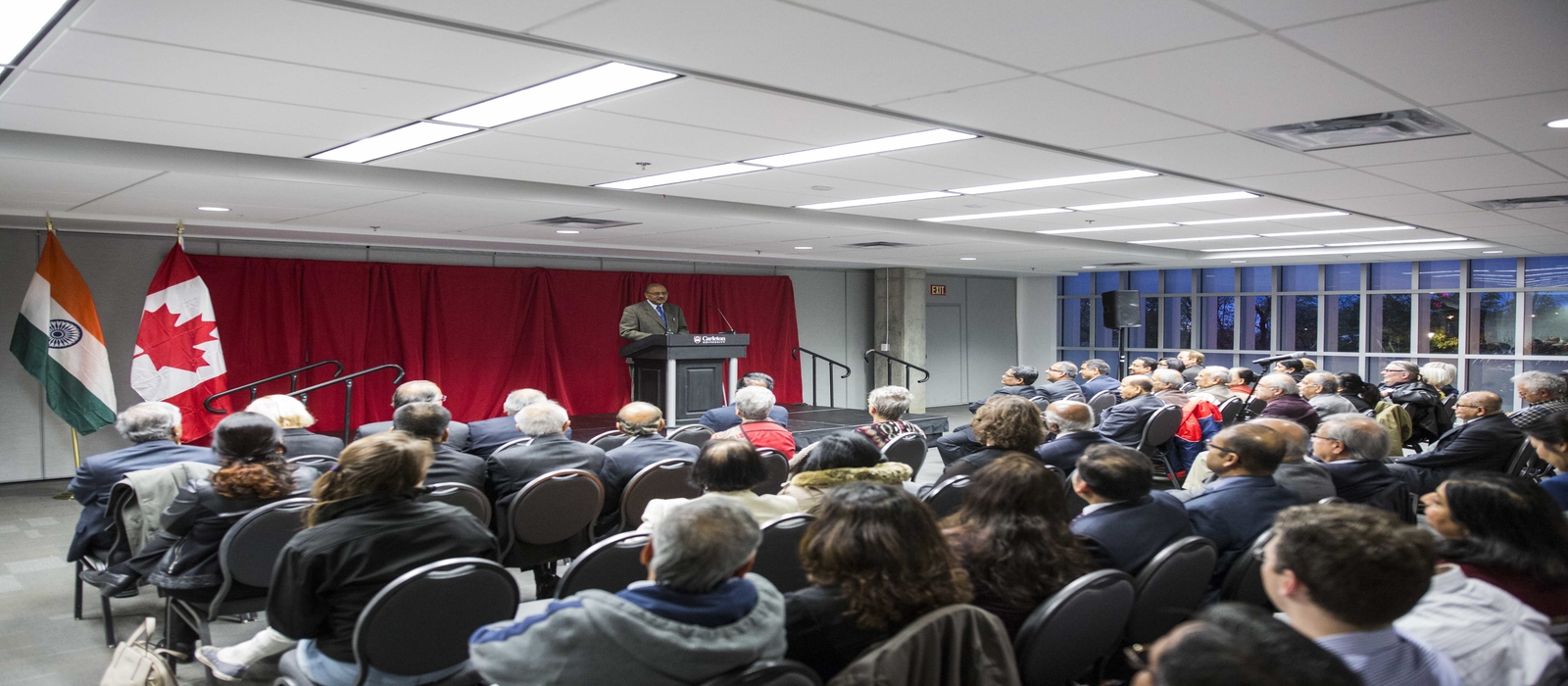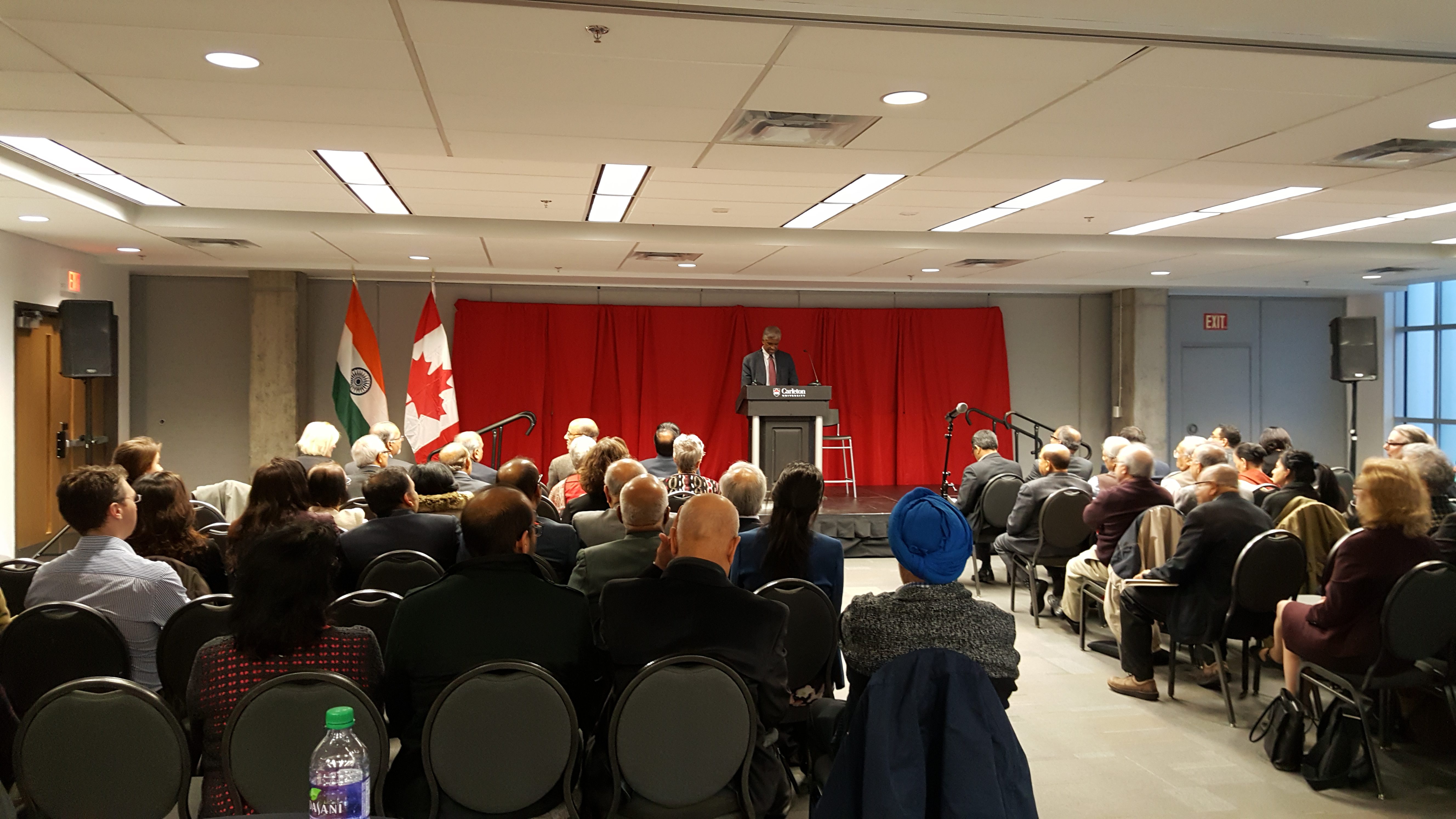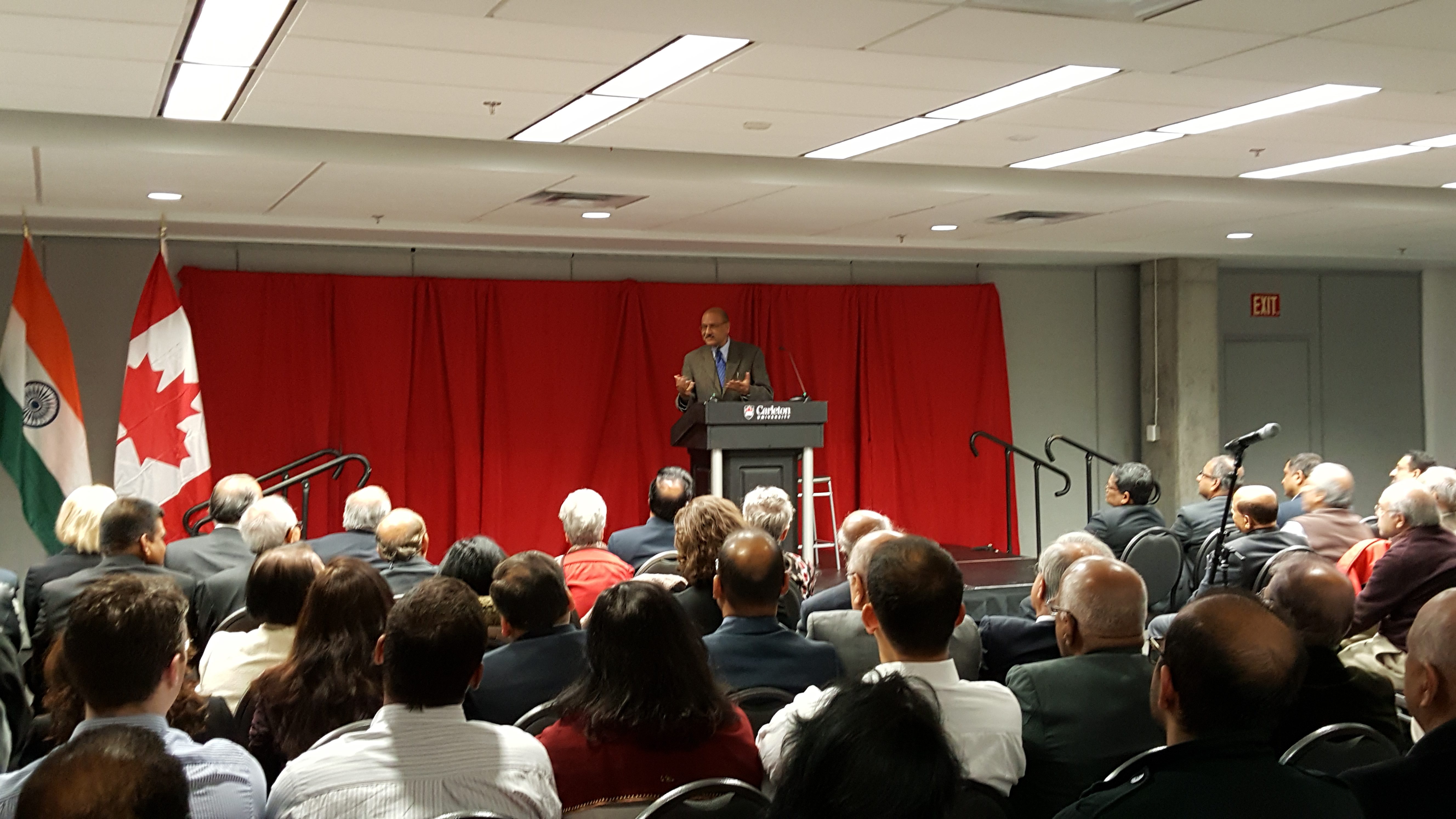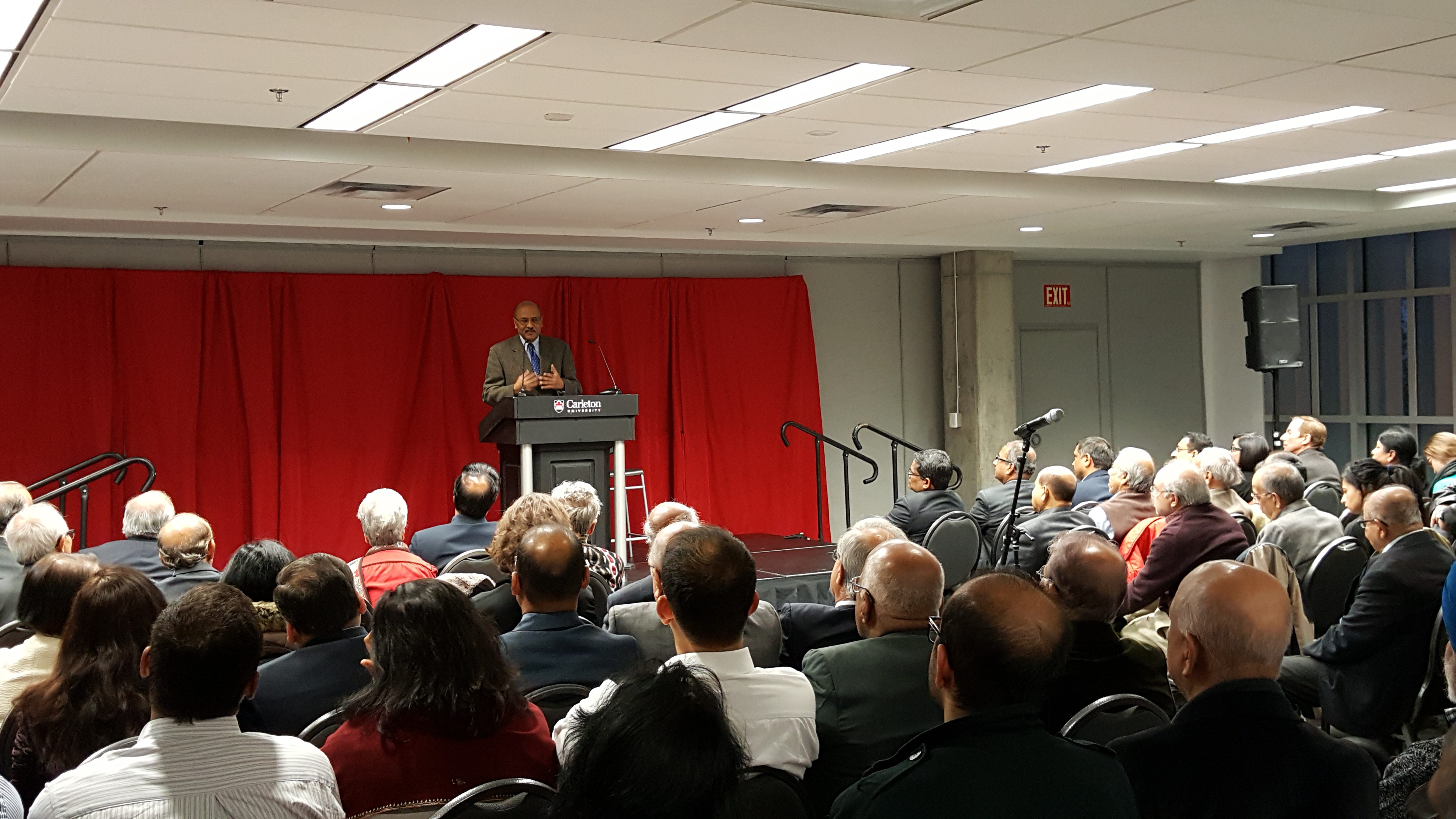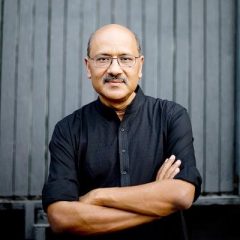 India is the most diverse society in the world, says Shekhar Gupta, the country’s prominent English-language journalist.
India is the most diverse society in the world, says Shekhar Gupta, the country’s prominent English-language journalist.
Its 1.3 billion people represent a kaleidoscope of ethnicities, religions, languages and social classes.
Yet, over the decades, as other nations have broken apart, India is becoming more cohesive, says Gupta. Drawn together by rapid advances in digital connectivity and a thriving media culture, as well as improved road, rail and domestic air traffic networks, Indians are ambitious, politically engaged and impatient for change.
Even in rural areas, people now have a sense of what life is like in big cities and other countries, and are increasingly dissatisfied with the status quo.
“That’s why I travel overseas less and less and for shorter and shorter spells,” says Gupta, who will deliver the annual Dhahan Lecture at Carleton University on Tuesday, Oct. 25. “Any time you’re away, you think you might miss something.”
Focusing on India in transition
The lecture, presented by Carleton’s Canada-India Centre for Excellence, and supported by centre board member Barj Dhahan, will focus on “understanding India in transition.” And considering Gupta’s unique vantage point over the past four decades, reaching millions of readers and television viewers with his columns and interviews, there is perhaps no better person to share their insights and perspectives.
Shekhar Gupta hosts a pair of shows, “Off the Cuff” and “Walk the Talk,” on NDTV, India’s top English news channel. His guests have included India’s Prime Minister Narendra Modi, Michael Bloomberg, U.S. Secretary of Defense Ashton Carter and Uber co-founder Travis Kalanick.
He also writes an influential column for India’s National Interest, and is the former editor-in-chief of the Indian Express, where he led one of the country’s largest networks of journalists.
To read more, click here.
